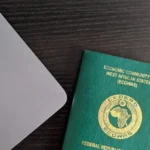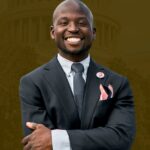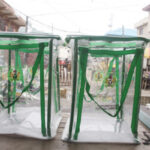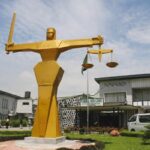Incumbent Julius Maada Bio was on Tuesday declared the winner of Sierra Leone’s presidential election with 56.17% of the votes. The election was conducted on Saturday June 24, 2023 wherein 3,374,258 registered voters also elected 135 Members of Parliament (MPs) and 14 Paramount Chief Members of Parliament (PCMPs).
President Bio’s main rival and former Foreign Minister, Samura Kamara, trailed with 41.16% of the vote. And he disputed the result.
Under the Sierra Leonean electoral system, a candidate needs more than 55% for outright victory and to avoid a second round.
And same Tuesday night, the 59-year-old former soldier was sworn in for his second and final five-year term, just as he called on citizens to “keep the peace.” His supporters, mainly of the Sierra Leone People’s Party (SLPP), organised scenes of celebrations in the capital, Freetown, as they hoisted banners, marching across the wet streets of the coastal city.
Hakeem Odumosu says appointment as EFCC Chairman is fake news
NGE, Obaseki mourn NewsDirect publisher, Ibiyemi
The result of the elections mirrors the 2018 election rivalry between Bio and the 72-year-old Dr Kamara, the candidate for the All People’s Congress (APC), which then went to a second round.
Thirteen political parties contested the presidential election, but it was largely dominated by Bio’s SLPP and Kamara’s APC.
Bio is not new to the country’s presidential politics. A retired Army Brigadier, he took part in the 1992 coup during the country’s civil war, only to overthrow the junta in 1996 and pave the way for free elections that year.
Saturday’s elections took place amid tension, almost marred by several violent incidents. And despite assurances by the electoral commission that it had mechanisms in place to ensure a fair vote, the results were controversial.
The election is the fifth since Sierra Leone’s brutal 11-year civil war officially ended in 2002. It left on its trail over 50,000 deaths and thousands of others with their arms and limbs amputated. The Nigerian-led Economic Community of West African States Monitoring Group (ECOMOG) played a prominent role in ending the 11-year-long civil war (1991-2002).
And since the end of the civil war, the country has had a tradition of largely peaceful, free and credible elections.
But the 2023 election is being disputed as supporters of both parties claimed victory. Mohamed Konneh, Chief Electoral Commissioner and Chairman, Electoral Commission of Sierra Leone (ECSL) said: “By the powers invested in me … I hereby certify that Bio Julius Maada … [is] duly elected president.”
But Kamara, the leading opposition candidate said: “It is a sad day for our beloved country. It is a frontal attack on our fledgling democracy. These results are not credible and I categorically reject the outcome so announced by the electoral commission.”
His party, APC, added in its first official statement, that it “unequivocally rejects the announced results…given the glaring irregularities and violations of established electoral procedures. We can no longer tolerate injustice, tyranny and usurpation of power in Sierra Leone. This is what dictatorship looks like.”
Accusing the Sierra Leone’s electoral commission of conspiring with Bio’s party to rig the results, the opposition called for the resignation of electoral commission chairman and his entire team.
“What culminated in the rogue announcement of fraudulent election results on June 25 was not just a naked theft of the votes of the suffering masses who needed change, it represents the biggest threat to our democracy, unity and survival as a nation,” it said.
It, therefore, declared its non-participation in any level of governance, including the legislature and local councils, as the results have already been tampered with to give the SLPP an unjust majority at all levels.”
While regional observers like the African Union and ECOWAS declared the elections free and fair, other Western observers stressed that the counting and tabulation process lacked transparency. Citing “statistical inconsistencies,” the European Union, UK, U.S. and France in particular pressured the electoral commission to display results from each polling station as without this, transparency was compromised.
The Electoral Commission’s chairman Konneh however said the disaggregated results would be uploaded to the website “in due course” and that it would take time.
Notwithstanding the observations, we implore the opposition parties to follow the rule of law and take legal option for redress. In the interest of the generality of the citizens, no one should resort to self-help.
Nothing whatsoever should be done to tamper with the relative peace that has reigned in the country since the end of the civil war 20 years ago.
Daily Trust enjoins all parties to exercise restraint, respect and follow the rule of law and engage in peaceful dialogue so that all issues under dispute would be resolved.
Sierra Leoneans are already showing frustrations with the pains of economic hardships, political tensions and mistrust, high youth unemployment and widespread poverty they are going through.
The country already witnessed violent protests in August 2022 across the country over soaring costs of living and this resulted in more than 20 deaths.
Tackling unemployment in the country with record as seventh poorest country in Africa and youth unemployment of nearly 60%, one of the highest in West Africa, will help reduce restiveness.
All stakeholders, including President Bio, must work to calm nerves as all parties seek constitutional means to resolve issues and promote reconciliation and development. We insist that the relative peace must be sustained and even improved upon. Nothing else should matter now.
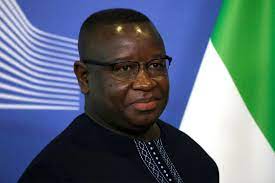
 Join Daily Trust WhatsApp Community For Quick Access To News and Happenings Around You.
Join Daily Trust WhatsApp Community For Quick Access To News and Happenings Around You.